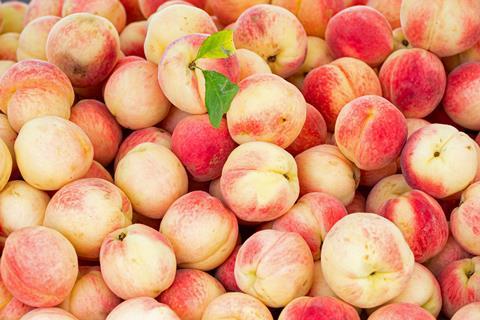Poor quality and loss of competitiveness blamed for 44 per cent drop in shipments in 2024/25

Argentine exports of fresh stonefruit totalled 4,803 tonnes in 2024/25, a fall of 44 per cent year-over-year drop and 11 per cent down on the three-year average, according to figures from plant health authority Senasa.
The contraction this season, which cover the October-April period, has been attributed to a lower fruit harvest, coupled with a loss of competitiveness in foreign markets.
Peaches were the main stonefruit exported, accounting for almost 60 per cent of total shipments. Exports reached 2,805 tonnes, a drop of 46 per cent on the year-earlier period, and 6 per cent down on the three-year average.
Production was projected to reach 110,000 tonnes this season, but quality issues caused to adverse climatic factors resulted in more fruit going for processing. Virtually all of Argentina’s peach harvest is destined for industry, especially canning, while the is sold on the domestic market and, to a lesser extent, for export.
Plums followed the same trend, with exports decreasing by 33 per cent to 1,237 tonnes.
The country has around 11,000ha of planted area, with production concentrated in the provinces of Mendoza, San Juan, and Río Negro. Most of the harvest is sold as dried plums or goes to processing. Premium varieties are exported, mainly to Brazil which account for 80 per cent of exports.
Nectarine exports fell by 54 per cent to 761 tonnes, from a total crop of around 7,000 tonnes. Again, the bulk of production is sold on the domestic market or goes for processing.



